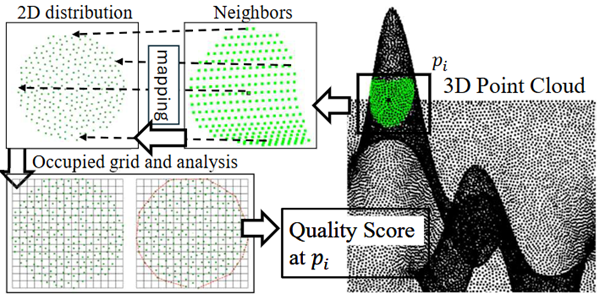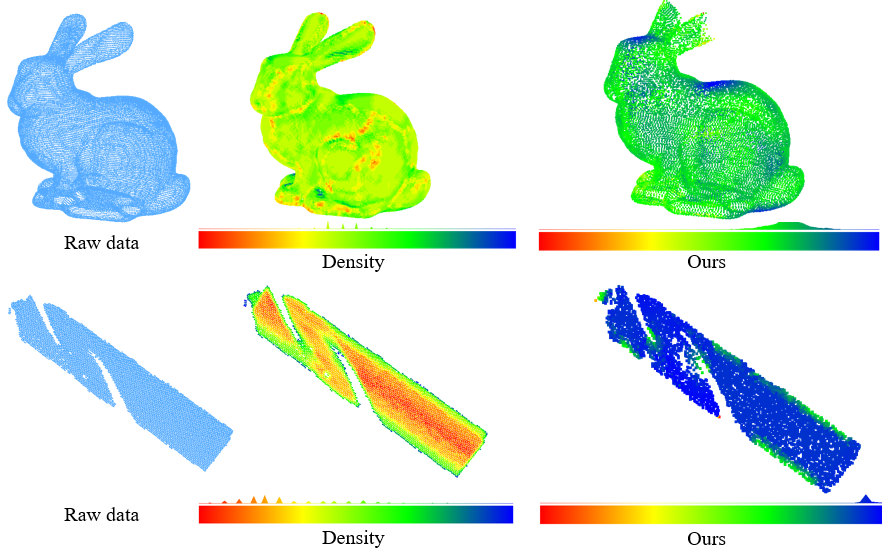This is the official repository for our proposed PCQA method, which can be integrated into industrial 3D automatic scanning, providing detailed quality scores for acquired point clouds.
Paper link: here
A subset of the scanned points is mapped onto a 2D distribution based on designated distance and angular values. The quality of the point cloud is then estimated from this 2D distribution. The calculation of the quality score for the points is presented as follows:
We recommend using Anaconda to create the environment. You can build the environment by:
conda create -n "PCQA" python=3.8 ipython
conda activate PCQA
pip install -r requirements.txt
# you can install torch based on your CUDA version
pip install torch torchvision torchaudio --index-url https://download.pytorch.org/whl/cu124We would like to thank DeepFit. Some parts of our implementation are based on their excellent work.
-
Run
You can jump into the
./srcfolder, and runpython n-jet_fitting.py
where the default order ($jet_order_fit) for n-jet is 3, and K size ($points_per_patch) is 256. A fitting result file is outputed in
./src/datafolder named "sample_order3_normal_beta.txt". -
Calculate the Quality Score
python pcqa_demo.py -tn 14 -sn 8
where
-tndenotesthread_numberand-snisskip_number. The smaller theskip_number, the slower the algorithm runs. -
[optional] Calculate the Quality Score in Jupyter Notebook
Install the kernel for Jupyter notebook
ipython kernel install --name "PCQA" --user jupyter notebookYou can open
QualityScoreEstimation.ipynbto have a better understanding. -
Visualization
A quality score file can be found in folder
./src/data/sample_quality_score_ours.txt. You can use code in./src/quality2color.pyto covert it to points with colors.Additionally, the software CloudCompare can be used to visualize it, as shown below
If you find this work helpful, please consider citing us
@article{LI2025102863,
title = {A robust assessment method of point cloud quality for enhancing 3D robotic scanning},
journal = {Robotics and Computer-Integrated Manufacturing},
volume = {92},
pages = {102863},
year = {2025},
issn = {0736-5845},
author = {Leihui Li and Xuping Zhang},
}
For any questions about this project, feel free to contact me at leihui@mpe.au.dk or open an issue in this repository.

